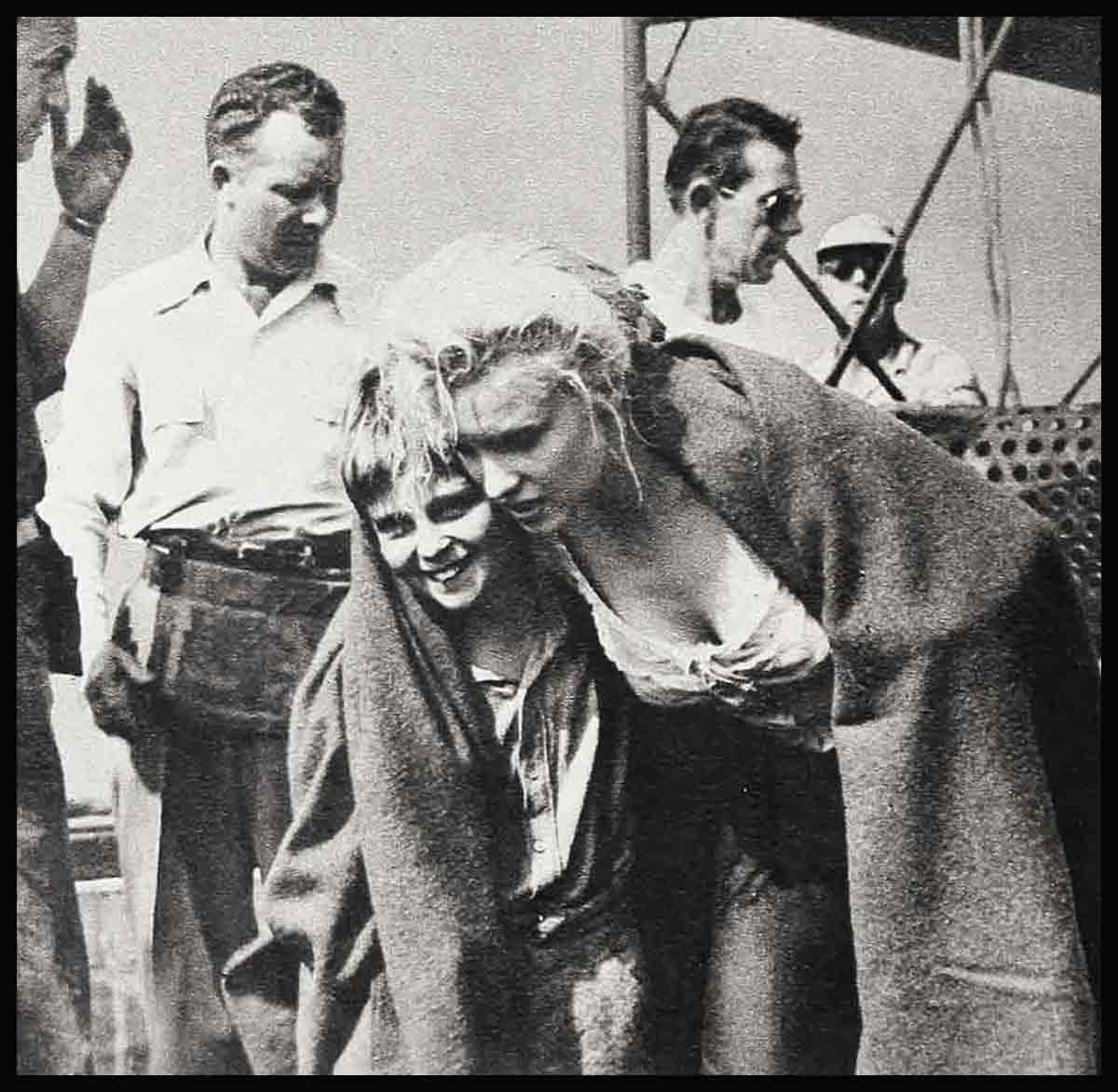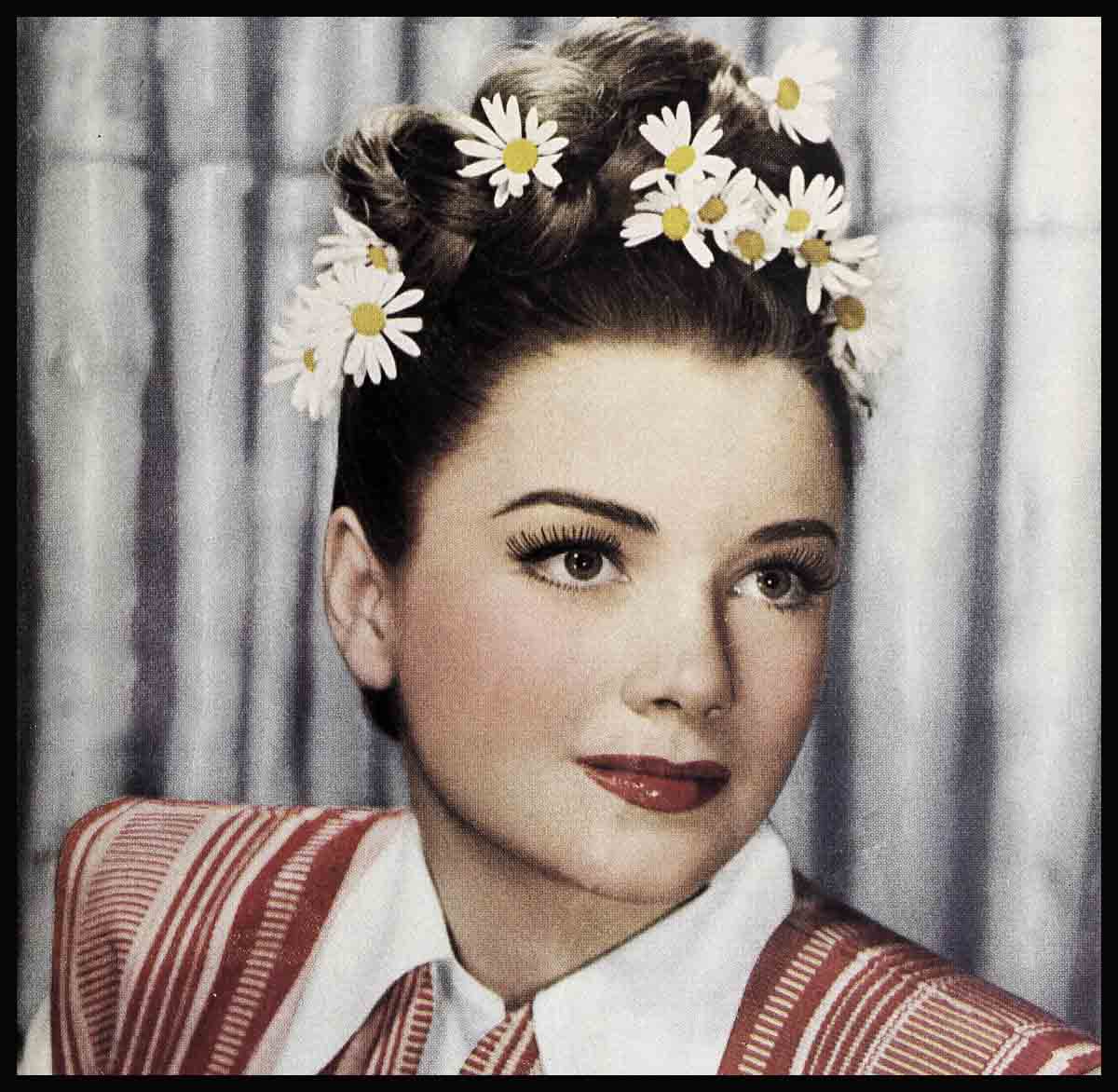
Why Women Love Marilyn Monroe?
Marilyn Monroe? She was the greatest surprise of my life! All the publicity about that calendar—I always thought she was just a cheap little siren. For a long time I wouldn’t go to see any of her pictures, or let my husband go, either! But when I finally did see her—why, she’s just sweet!”
Those are the words of a Brooklyn housewife. But all over America other housewives are agreeing with her. Marilyn has conquered the hearts of American women as thoroughly as she has conquered American men. A year ago women called her “that awful Monroe girl.” But today it’s different. Why? “She got married,” says a studio technician, cynically.

“When she left the studio and became Mrs. Joe DiMaggio, all he women in the country figured she wouldn’t be making those sexy pictures any more. Now that she is settled down as a married woman, they can afford to say Marilyn’s okay.”
But the change had started long before the wedding ceremony, and Marilyn’s marriage was the home run rather than the batter-up in the game of winning feminine approval. When did it start—and why did it take so long for the women of America to change their minds about Marilyn?
“I think we’ve been held back by all the publicity,” says the principal of a girl’s school. “It was a shame that Marilyn Monroe was hailed as a siren. I don’t believe that women really feared her effect on their men—but when the only pictures they ever saw were of Marilyn bursting out of skintight, low-cut dresses, it’s not surprising they considered her cheap.

“In our school, for instance, we wouldn’t let the girls see her pictures,” she points out. “We had nothing against Marilyn Monroe, but you can’t allow young and impressionable girls to think scanty clothing is the way to be popular!”
From a woman’s point of view, Marilyn had plenty of publicity—and all of it was bad. On the other hand, it may well have been female resistance to that bad publicity which helped to put Marilyn up top! Certainly, the American males who whistled at her pictures and envied Joe DiMaggio found an extra spice in doing something their women didn’t approve!
When did it change? The first step, perhaps, was Joan Crawford’s condemnation of Marilyn after a magazine awards dinner. “I have never been so embarrassed in my life,” said Miss Crawford. “The make-up of the true star is founded on talent. Miss Monroe is giving a grotesque interpretation of the artistry and sincerity that is, and has always been, behind the making of movies.”

These were strong words—a little too strong for some of the American housewives. Women are basically tenderhearted and traditionally on the side of the underdog. After all, they said to themselves, Marilyn probably isn’t responsible for all the publicity, and even if she does lend herself to some questionable appearances, it isn’t very nice of an established star to condemn Marilyn for following the Hollywood pattern.
As for Marilyn herself, she said nothing . . . and thereby gained a lot more approval. What might have been an unpleasant Hollywood feud became merely an incident in which Marilyn behaved with dignity. And when Marilyn received an award this year, Hollywood actresses rose to applaud her.

Biggest boost of all to Marilyn’s new place in the hearts of American women probably came from her television appearance with Jack Benny. For one thing, women who wouldn’t have gone across the street to see Marilyn in a movie couldn’t resist the free opportunity to take a look for themselves at this American phenomenon.
They turned on their TV sets; they saw—and Marilyn conquered! “I still don’t know that she can act,” said one viewer. “But she was real sweet! I was surprised . . . she has such a gentle voice and she seemed so quiet, and just—nice, somehow. You know, I think we’ve all misjudged her!”
All over the country, women felt the same way: Marilyn—if misjudged—became a girl who needed sympathy rather than censure. What, after all, was known about her?

The calendar? That was a mistake, surely—but on the other hand, if you needed money to eat, you’d take any job that offered. And Marilyn had no relatives or family who could advise her that posing for a nude calendar wasn’t the right way to earn a living.
American women, on thinking it over, decided that the calendar was the result of inexperienced youth. Marilyn had had no one to guide her. And don’t forget that in spite of all the hullabaloo, no one has ever said Marilyn was as cheap as her publicity.
But separating the girl from her publicity was a tough job for most people. When her mother died, public sentiment swung madly from side to side—until the facts emerged. Again Marilyn said very little, but her growing number of friends and adherents sprang to her defense.

To all intents and purposes, Marilyn’s own mother had almost never in any way helped her daughter. The only mother-influence Marilyn had ever known had come from her foster mother who had died several years before. How could you expect Marilyn, whose most outstanding trait is sincerity, to pretend to deep affection for a mother who had been forced to place her in an orphanage?
Once again, feminine sympathy went to Marilyn. Even the mothers of America felt that she had handled a difficult situation in the only possible way. She had assumed financial responsibility, but to pretend to a sentimental attachment would have been a lie.
On the other hand, perhaps Marilyn was too occupied with her career, too brainless a blonde to be capable of sentiment. Joe DiMaggio was the answer to that. Joe, in fact, was the answer to all the remaining questions about Marilyn.

Underneath all the scantily clad pictures, the avalanche of stories in all the magazines, the calendar displays in the drugstores and all the rest of the ballyhoo, one thing remained unchanged: the steadfast attachment between Marilyn Monroe and her Joe.
Whenever Marilyn could spare enough time, she was to be found in San Francisco, surrounded by the DiMaggio family. She was behaving, it seemed, like any young girl with a best beau: rushing to see him when she finished work, spending weekends and holidays with his family, “going steady,” in fact.
It began to look as if Marilyn truly was just a nice girl. She had always said she liked a quiet life, that she was fond of children, that she wanted to become a better actress, and that she spent her nights reading to improve her mind. Nobody had ever believed her—but apparently it was true, just the same.
“Miss Monroe’s marriage has a much better chance of succeeding than many Hollywood romances,” says Roland P. Taylor, a well-known British family counselor. “She places a tremendous value on the stability of the home, due to her own unhappy and lonely childhood. It is probable that stardom, fame, money, would mean—literally—nothing to her if they conflict in any way with her chance for a life like other women.
“In England, we have never viewed Miss Monroe as she has appeared in America,” he says. “We have tended to accept her as an unusually pretty girl who, despite all the siren build-ups, only wants in her life what all women want: a home, husband, and children.”
American women are daily coming to the same conclusion. When Marilyn put her career in second place (apparently) to marry the man of her heart . . . when Marilyn stated frankly that she meant her marriage to last and she intended to have at least five kids . . . when a man as prominent and as well-balanced as Joe DiMaggio chose her to be his wife . . . her countrywomen suddenly realized Marilyn was just one of the girls.
“It’s time we stopped making fun of Marilyn and talking about her,” says that “For one thing, Marilyn never talks back! And she’s just as American as apple pie, when you come to think of it! She’s a real success story. Everything she’s got, she got all by herself—including a happy marriage.
“If she continues her career in pictures, I think women are going to be her biggest fans,” she concludes with a smile.
“As a matter of fact, now that women love Marilyn, she’ll be much less interesting to men. They’re going to figure that if women like her, she can’t be any fun!”
Maybe she’s wrong about that—but she’s right about one thing: women love Marilyn!
THE END
—BY ELSIE LEE
It is a quote. SCREENLAND MAGAZINE JULY 1954





No Comments